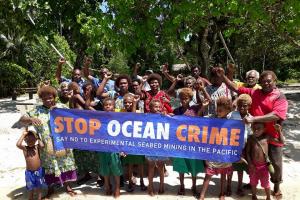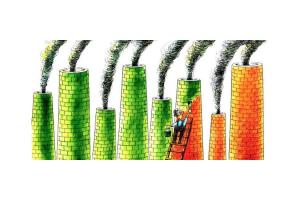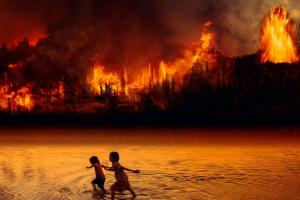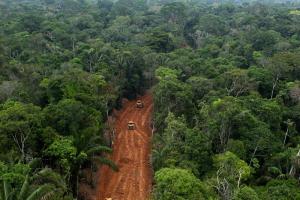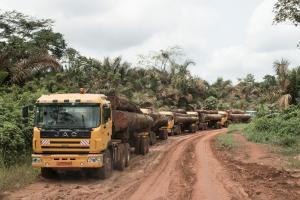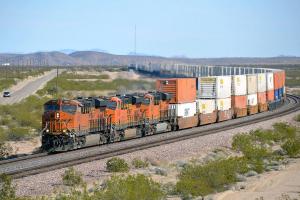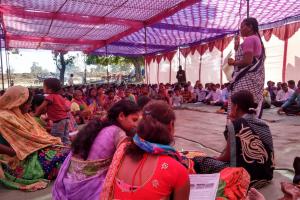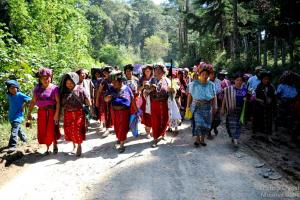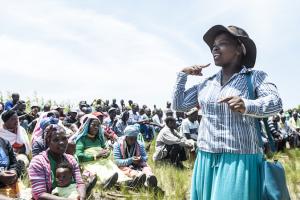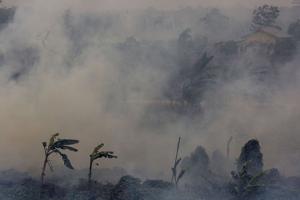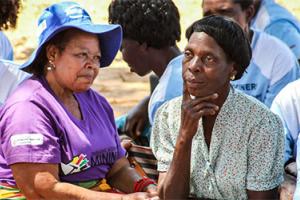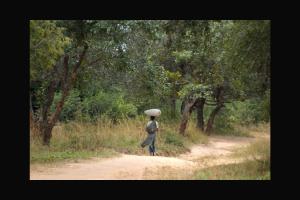Large-Scale Mining
Fueled by ever-increasing demand and the boom-and-bust cycles of global commodity markets, large-scale mining destroys forests and pollutes soil, air and water. Violent conflicts, sexual exploitation, criminalization and displacement of communities living in forests destroyed for mining, are examples of social impacts that are inherently linked with the mining industry.
Governments and transnational corporations backed up by multilateral financial institutions, together with Pacific Island nations, are racing to divide up the ocean under the narratives of so-called sustainable Blue Economy and Blue Growth, to justify its exploitation.
The European Union’s policy pursues growth at any price. “Green” technologies require an increasing amount and variety of metals and minerals. Millions of public funds flow every year from the European Investment Bank to mining projects—under the cloak of “development.”
“Shock” is a common reaction when a crisis emerges… or when it comes to light. However, it also provides a convenient smoke screen for governments, financial institutions and companies behind which they can hide their own role in and responsibility for the current crises in the forests.
It is impossible to think about extraction without thinking about a vast network of accompanying infrastructure, and thus even greater deforestation and destruction.
We live in an age of ever more “extreme infrastructure.” The construction of roads, railway lines and other infrastructure linking production and resource extraction centres with major consumer areas is tied to profoundly undemocratic forms of elitist planning.
The mega-infrastructure corridors prioritized in ambitious investment programmes spanning the african continent are squarely focused on facilitating the export of minerals and agricultural commodity crops and the import of processed foods and manufactured goods.
Village assemblies in Korchi, along with resistance against mining, are actively engaged in reimagining and reconstructing local governance. Women’s collectives have also started to assert their voice in these emerging decision-making spaces. (Available in Swahili).
In Latin America, women have always been part of the historical struggles in the defence of territory and the environment. Through protests and daily practices, they have resisted the many ways of extractivism and all forms of violence against women. (Available in Swahili).
The Southern African Peoples Permanent Tribunal on Transnational Corporations has been an important tool for communities to share their struggles as well as to challenge the status quo by rising up to say NO to corporate power, impunity and a destructive development agenda. (Available in Swahili).
Despite that most forest fires in Indonesia started within expanding oil palm plantation concession areas, companies are not being persecuted. (Available in Indonesian).
The extractivist paradigm in Southern Africa threatens the lives and livelihoods of peasant communities, in particular women and girls: From the Tete Province in Mozambique, where women confront water scarcity and pollution to Zimbabwe’s Marange community, where militarised and often sexualised violence haunts women’s daily lives.
Zambia’s peaceful context and strategic geographical location, combined with a desperate hunger for foreign direct investment, positions the country at the frontline of the global wave of resources grabbing, the crisis of global capital and the capitalisation of climate change
